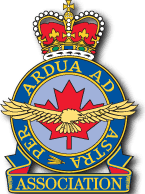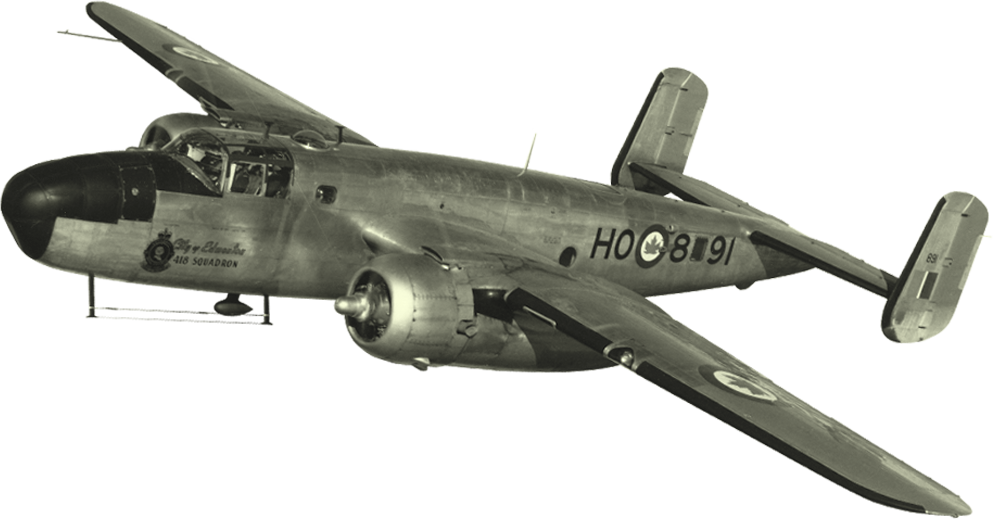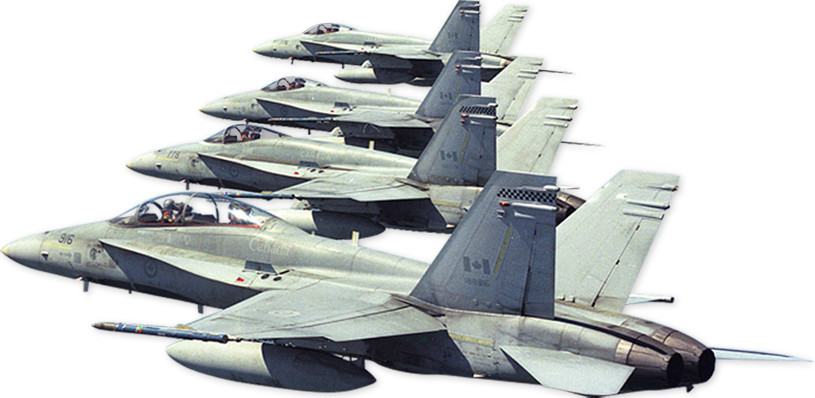DUNGEY,
Elmer Burton
Pilot Officer,
No.408 Squadron,
J17742
Distinguished Flying Cross
RCAF Personnel Awards 1939-1949
Description (click to view)
DUNGEY, P/O Elmer Burton (J17742) - Distinguished Flying Cross - No.408 Squadron - Award effective 3 November 1943 as per London Gazette dated 19 November 1943 and AFRO 166/44 dated 28 January 1944. Born 20 May 1915 in Alliston, Ontario; home in Collingwood, Ontario; enlisted Toronto, 5 June 1941. Trained at No.3 ITS (graduated 19 December 1941; to No.4 EFTS, 24 December 1941; may have graduated 5 March 1942 but not posted to No.2 SFTS until 11 March 1942; graduated 3 July 1942. Further trained at No.22 OTU, Wellesbourne. Commissioned 1943. Shot down 3 July 1943, he was the last man to bale out (whole crew survived); he and one other crewman were hidden by Belgian underground. He escaped via France and the Pyrenees to Spain, took a boat to Gibraltar and made it back to England. Other postings unclear on available record. Retired 8 January 1947. Postwar he ran a bakery and worked in real estate. Died in Toronto, 30 May 1996.
This officer has completed very many sorties involving attacks on a wide range of important and well defended targets. He is a skilful and determined pilot whose fine record has been worthy of high praise. His coolness and courage in the face of the enemy have greatly inspired his crew.
Public Record Office Air 2/5020 has recommendation by W/C W.D.S. Ferris dated 21 October 1943 when he had flown 20 sorties (131 hours 55 minutes).
Pilot Officer Dungey has carried out 20 sorties against enemy targets, some of them being the most heavily defended targets in Germany. These sorties included the following: Cologne; Dusseldorf; Le Creusot; Krefeld; Wuppertal; Gelsenkirchen; Dortmund; Duisburg; Bochum; Frankfurt; Stuttgart; Pilsen; Stettin.
At all times his cheerful confidence inspired a high standard of morale in his crew, and through a quiet doggedness he has won a very good record of achievement. On the night of the 3rd July 1943, on a trip to Cologne, Pilot Officer Dungey?s aircraft was attacked by two enemy fighters and set on fire owing to a hit in the incendiaries in the bomb bay. Displaying a fine sense of airmanship, he righted the aircraft and held it sufficiently long for his crew to bale out, then baled out himself. Pilot Officer Dungey displayed great presence of mind in not being taken prisoner, winning his way to freedom back to this country. I strongly recommend that this officer be granted the immediate award of the Distinguished Flying Cross..
NOTE: In January 1997 the Royal Air Forces Escaping Society (Canadian Branch) presented to the National Aviation Museum a \"dossier\" (actually more like an album) with extended autobiographical notes on members (catalogued in the museum as D.805 C3 L96 1995 NMM). This included much information on him.
Public Record Office WO 208/3315 has MI.9 report of his evasion; he had left Gibraltar on 11 October 1943, arrived Lyneham on 12 October 1943 and been interviewed on 13 October 1943. Crew were P/O V. Foster (navigator, POW), P/O T. Lowrey (bomb aimer, POW), Sergeant T.M. Brown (RCAF, flight engineer, POW), Sergeant R.H. Speller (RCAF, mid-upper gunner, POW) and Flight Sergeant A.T. Bowlby (RCAF, rear gunner, evaded).
I was pilot of the crew of a Halifax bomber which left Leeming (Yorks) at 2250 hours on 3 July 1943 to bomb Cologne. We were attacked on the outward journey by two Junkers 88s, north of Diest (Northwest Europe 1:250,000, Sheet 3). Our bomb bay was hit and caught fire, and we had to jettison. I gave orders to bale out.
At 0035 hours (4 July) I came down in a bush near Tessenderloo (Northwest Europe, 1:250,000, Sheet 3) and was immediately knocked unconscious. My parachue remained hanging in a tree. When I came to I heard a man shouting, about 25 yards from me. He came over and took me to his farmhouse. Here his wife gave me a hot drink and something to eat. My host managed to extricate my parachute and brought it into the house.
After resting for half an hour I was taken out to a barn about 50 yards away. There were some men hiding here who said they were escaped Russians. One of them was definitely a fighter pilot. At 0400 hours, several men arrived and one of them took me to the woods and hid me in some bracken, where I stayed until 1000 hours. He man returned with a Belgian, who could speak very good English, and old me I was to remain there until 2200 hours (4 July). At 2200 hours another man came, brining me civilian clothes, and from that point my journey was arranged for me.








